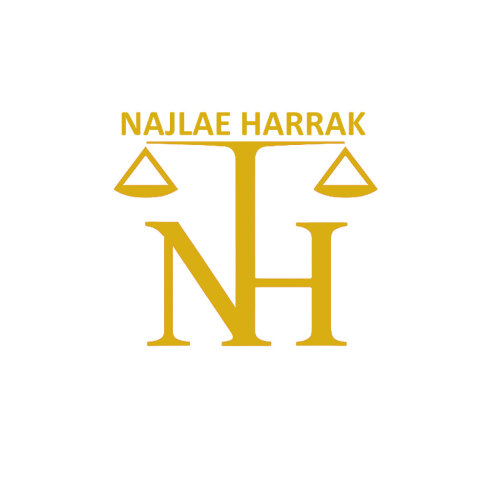Best Child Abuse Lawyers in Tétouan
Share your needs with us, get contacted by law firms.
Free. Takes 2 min.
Free Guide to Hiring a Family Lawyer
List of the best lawyers in Tétouan, Morocco
About Child Abuse Law in Tétouan, Morocco
Child abuse in Tétouan is treated as a serious criminal and social issue. Moroccan law protects any person under 18 from physical violence, emotional harm, neglect, sexual abuse, exploitation and trafficking. Authorities can act quickly to remove a child from danger, start a criminal investigation and put protective measures in place. Cases can involve the police in urban areas, the Royal Gendarmerie in rural or peri-urban areas, the local prosecutor and specialized juvenile justice services.
In practice, reports can come from family members, neighbors, schools, health providers or the child. Proceedings often run on two tracks. Criminal authorities investigate and prosecute the offender. Family courts and child protection services focus on the child’s safety, custody, visitation, and support. Proceedings involving minors are generally confidential and designed to minimize harm to the child. Arabic and French are used in court. Spanish is also common in the Tétouan region and may be available in some services.
Why You May Need a Lawyer
Child abuse matters are complex and move quickly. A lawyer can help you navigate procedures, protect rights and avoid mistakes that could put a child at risk. Common situations where legal help is important include the following.
Filing a police complaint and seeking immediate protection orders such as removing an abuser from the home, restricting contact or placing the child with a safe caregiver. Coordinating emergency medical care and obtaining a medical certificate, known locally as a certificat médical, which is frequently used as evidence in assault cases.
Managing family law issues that often come with abuse, such as custody, visitation, child maintenance, guardianship and relocation. Asking the court to suspend or limit parental authority when a child is in danger. Advising on safe contact arrangements supervised by social services.
Supporting a child during interviews and hearings, requesting child friendly procedures, and working with social workers, psychologists and child protection units. Ensuring that statements are taken in a way that reduces trauma and preserves evidentiary value.
Pursuing civil compensation for damages, medical costs and therapy, in addition to criminal penalties. Addressing situations involving schools, religious institutions, sports clubs or residential care. Handling cross border issues that can arise in the Tétouan region, for example when one parent lives abroad or when travel documents are used to remove a child.
Advising foreigners and migrants on how to report safely, what documents to bring and how proceedings interact with immigration status. Coordinating with consular services when appropriate.
Local Laws Overview
Moroccan criminal law protects minors against physical assault, sexual assault, indecent acts against minors, harassment, exploitation in prostitution, pornography, neglect, abandonment and endangerment. Penalties are higher when the victim is a minor, when the perpetrator is a parent or caregiver, or when there is abuse of authority or trust. Attempts to commit certain offenses against children are also punishable.
Child trafficking is a serious offense under Moroccan law. It includes recruiting, transporting, harboring or receiving a child for exploitation. Consent of the child is never a defense. Related crimes include forced begging and economic exploitation.
The Family Code, known as the Moudawana, provides tools to protect children in danger. Courts can modify custody and visitation, suspend or remove guardianship, and authorize urgent protective measures. A child’s best interests guide decisions. Judges may consult social inquiries and expert reports to determine safe arrangements.
Procedural protections include confidential hearings, the possibility to record testimony in a child appropriate setting, and the involvement of juvenile prosecutors and specialized judges. The prosecutor can order urgent steps to protect a child while an investigation proceeds. Health professionals can document injuries and refer families to services. Schools and social workers cooperate with authorities to ensure safety planning.
Morocco regulates child labor. Employing a minor in hazardous or exploitative conditions is prohibited. The employment of minors in domestic service is tightly restricted, with an absolute ban below a certain age and strict conditions for older adolescents. Where work amounts to abuse or exploitation, criminal penalties apply.
In Tétouan, reports can be made to the Police at the nearest commissariat, to the Royal Gendarmerie in zones outside police coverage, or directly to the public prosecutor at the Court of First Instance. Local child protection committees and social services can assist with emergency placement, counseling and follow up.
Frequently Asked Questions
What should I do first if I suspect a child is being abused
Ensure the child is safe, call emergency services if there is immediate danger, seek medical help if needed, and make a report to the police, the Royal Gendarmerie or the prosecutor. If possible, speak with a lawyer early to plan protective steps and preserve evidence.
Where can I report child abuse in Tétouan
You can report to the Police in the city, to the Royal Gendarmerie for areas they cover, or directly to the public prosecutor at the Court of First Instance. In an emergency, call 19 for police in urban areas or 177 for the Gendarmerie. You can also dial 112 from a mobile phone.
Can I report anonymously
Anonymous tips can trigger an initial check, especially for urgent risks, but giving your contact details helps authorities follow up. Your identity can be kept confidential in many cases. A lawyer can help you report safely while protecting your privacy.
Will the child have to testify in court
Authorities aim to minimize repeated questioning. Testimony may be taken by a specialized officer or judge in a child friendly setting, sometimes recorded for later use. Courts can limit direct confrontation with the accused. A lawyer can request safeguards tailored to the child.
What evidence should I collect
Keep medical records, the medical certificate documenting injuries, photos of injuries if safe to take, messages or emails, and names of witnesses. Do not question the child repeatedly. Avoid sharing information on social media. Bring documents to your lawyer and the authorities.
How quickly can protective measures be put in place
In urgent cases, the prosecutor and juvenile judge can act quickly to separate a child from the alleged abuser, place the child with a safe caregiver or a temporary facility, and restrict contact. The timing depends on risk, evidence and service availability, but emergency action can be same day.
What if the alleged abuser is a parent or relative
The same criminal rules apply. Family courts can modify custody, visitation and guardianship to prioritize safety. Supervised visitation or no contact orders can be requested. Financial support obligations remain and can be adjusted.
What happens if the abuse occurred at school or an institution
Report to law enforcement and notify the institution. Authorities can investigate the individual and look at institutional responsibility. Civil claims for damages may be possible. Schools must cooperate with investigations and take protective actions for the child and other students.
Are there time limits to file a complaint
Moroccan law sets time limits that vary by offense. For crimes against minors, special rules can extend deadlines or change when the time limit starts. Because these rules can change, speak with a lawyer promptly to avoid missing a deadline.
Can foreigners or tourists report child abuse
Yes. Any person can report. You can contact the police, the Royal Gendarmerie or the prosecutor. Interpretation can be arranged. A lawyer can help with statements, documentation and coordination with consular services if needed.
Additional Resources
Police Commissariats in Tétouan handle urban reports and emergencies. Call 19 or 112 in an emergency. The Royal Gendarmerie handles non urban areas and road zones. Call 177 for emergencies in their zones.
The Public Prosecutor at the Court of First Instance of Tétouan receives complaints, orders protective measures and oversees criminal investigations. You can attend during office hours or request assistance through law enforcement.
Juvenile justice services and child protection units work with prosecutors and courts to assess risk, arrange safe placement and provide follow up social support. Hospitals and public health centers can provide medical care and issue medical certificates used in court.
Ministry of Solidarity, Social Integration and Family and Entraide Nationale support social services and shelters, including assistance for minors at risk. Regional child protection committees in the Tanger Tétouan Al Hoceima region coordinate prevention and case management.
National Council for Human Rights known as CNDH can receive complaints and guide individuals to appropriate channels. The National Observatory for the Rights of the Child known as ONDE promotes child protection initiatives and supports good practices.
Non governmental organizations in Morocco such as SOS Villages d’Enfants Maroc, Bayti and AMANE provide support to children and families, including psychosocial care, prevention programs and referrals. UNICEF Morocco partners with authorities and organizations to improve child protection systems.
Next Steps
Prioritize safety. If there is immediate risk, call 19, 177 or 112. Seek medical care and request a medical certificate if there are injuries or signs of abuse. Keep documents and photos safe and avoid public disclosure that could endanger the child or the investigation.
Make a formal report to the police, the Royal Gendarmerie or the prosecutor. Provide clear facts, dates, names and any evidence you have. If you are unsure how to proceed, consult a lawyer in Tétouan who works in child protection and family law.
Ask your lawyer about urgent protective measures, safe housing, supervised contact and how to modify custody or visitation if needed. Discuss how to support the child during interviews and how to coordinate with social workers, schools and health providers.
Follow up on referrals for psychological support. Keep a written timeline of events, appointments and communications. Attend all hearings and bring identification and relevant documents. If you or the child do not speak Arabic or French comfortably, request an interpreter.
This guide is general information. It is not legal advice. Each case is unique. For advice on your situation, speak directly with a qualified lawyer in Tétouan.
Lawzana helps you find the best lawyers and law firms in Tétouan through a curated and pre-screened list of qualified legal professionals. Our platform offers rankings and detailed profiles of attorneys and law firms, allowing you to compare based on practice areas, including Child Abuse, experience, and client feedback.
Each profile includes a description of the firm's areas of practice, client reviews, team members and partners, year of establishment, spoken languages, office locations, contact information, social media presence, and any published articles or resources. Most firms on our platform speak English and are experienced in both local and international legal matters.
Get a quote from top-rated law firms in Tétouan, Morocco — quickly, securely, and without unnecessary hassle.
Disclaimer:
The information provided on this page is for general informational purposes only and does not constitute legal advice. While we strive to ensure the accuracy and relevance of the content, legal information may change over time, and interpretations of the law can vary. You should always consult with a qualified legal professional for advice specific to your situation.
We disclaim all liability for actions taken or not taken based on the content of this page. If you believe any information is incorrect or outdated, please contact us, and we will review and update it where appropriate.










